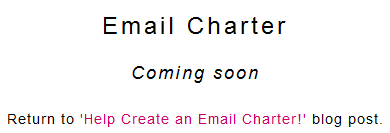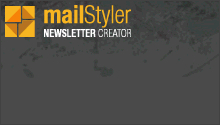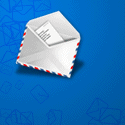Help Create an Email Charter
Is it possible to have a definitive list of common rules for safer and more responsible email usage?
In 2009 Internet marketing guru Seth Godin, posted a long checklist that everyone should run down before hitting “send” on the next mail:
- Is it going to just one person? (If yes, jump to #10)
- Since it’s going to a group, have I thought about who is on my list?
- Are they blind copied?
- Did every person on the list really and truly opt in? Not like sort of, but really ask for it?
- So that means that if I didn’t send it to them, they’d complain about not getting it?
- See #5. If they wouldn’t complain, take them off!
- That means, for example, that sending bulk email to a list of bloggers just cause they have blogs is not okay.
- Aside: the definition of permission marketing: Anticipated, personal and relevant messages delivered to people who actually want to get them. Nowhere does it say anything about you and your needs as a sender. Probably none of my business, but I’m just letting you know how I feel. (And how your prospects feel)
- …
Now, three years later, Chris Anderson – founder of Future Publishing and curator of the TED Conference – would like to do even more. He asked anyone to help him create an Email Charter.
He explained this interesting project on a recent post: “I have reserved the url emailcharter.org for the finished product.. But first let’s figure out what the charter should be. Let’s do this as a crowd. It’s a shared problem. Let’s come up with a shared solution. It will only work if lots of people agree to it.”
And he suggested some candidate rules for the Email Charter:
1. Respect Recipients’ Time
1. Respect Recipients’ Time
This is the fundamental rule. As the message sender, the onus is on YOU to minimize the time your email gobbles at the other end — even if it means taking more time at your end before sending.
2. Be Easy to Process
This means: crisp sentences, unambiguous questions, keep it short. If the email absolutely has to be longer than 100 words, make sure the first sentence is clear about the basic reason for writing.
3. Choose Clear Subject Lines.
Here are some that don’t work:
Subject: Re: re: re: re
Subject:
Subject: Hello from me!
Subject: next week….
Subject: MY AMAZING NEW SHOW starts next week at the Vctory Theater at 113-86 Broad Lane, every night 8 PM 6/7–7/12
Here are some that do:
Subject: TED Partnership Proposal
Subject: Rescheduling today’s dinner with Sarah G.
Subject: Noon meeting cancelled (eom).
EOM means ‘end of message.’ It’s a fine gift to your recipient. They don’t have to spend the time actually opening the message.
Wanna join? Simply leave a comment with your ideas to his post. They will be taken into consideration to create the final Email Charter!



